




Yudai Tsurusaki
Data-Driven Simulation for Evaluating Profitability of PaaS Businesses in the Growth Phase
FY2023–2024
This study develops and validates a data-driven simulation method to explore product supply strategies that balance profitability and resource efficiency (environmental performance) in the growth phase of PaaS businesses. Using a used-PC rental business as a case, it reconstructs user decision-making and product circulation in detail, compares 405 strategy scenarios, and identifies effective strategies that enhance profitability and utilization. The results demonstrate the potential of this method as a general evaluation tool to support the sustainable growth of PaaS models.

Meguru Yamada
Environmental Impact Assessment of Combined Clothing Ownership and Sharing Based on Consumer Analysis
FY2023–2024
This study evaluates the environmental impact of combining clothing ownership and sharing using Life Cycle Assessment (LCA), and analyzes the relationship with consumer behavior and preferences. Results revealed that for many users, environmental impact increased, indicating that sharing does not necessarily reduce ownership. However, some users successfully reduced their environmental impact by lowering ownership, highlighting the importance of identifying target users and designing appropriate services.
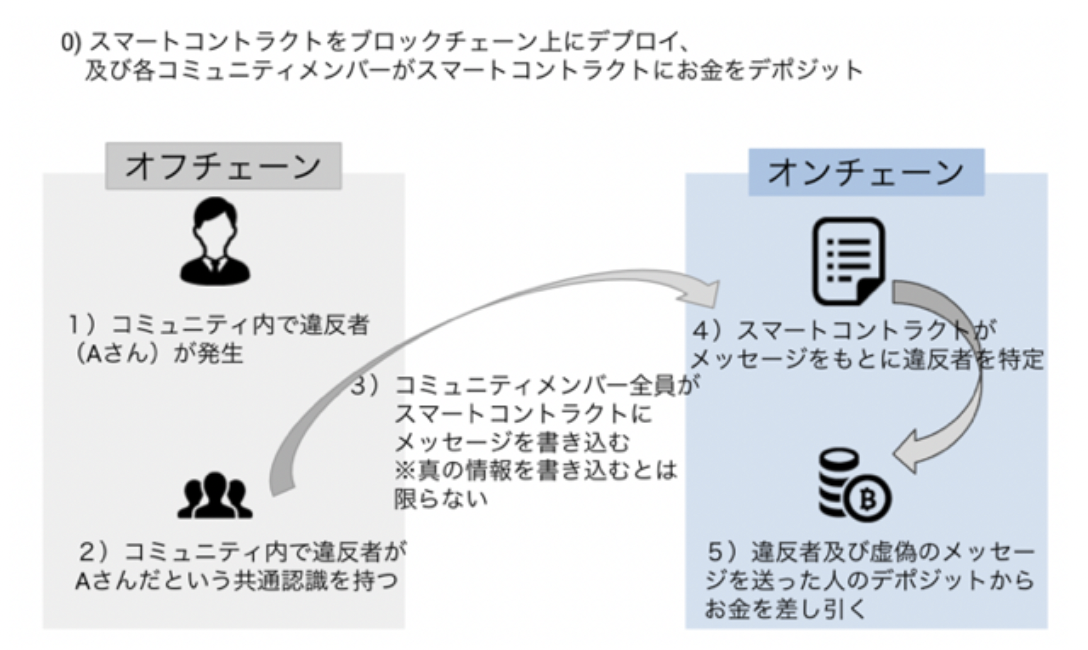
Akiyoshi Yagi
Verification of the applicability of a Digital Court mechanism for decentralized autonomous organizations
2021-2023
This study aims to resolve the oracle problem within decentralized autonomous organizations using an algorithm called Digital Court. To solve the issue of 'low voter turnout,' which is a characteristic challenge of decentralized autonomous organizations, we have devised an algorithm that extends the existing Digital Court mechanism by incorporating a delegated voting system.

Collaborative research, SS Market
Development of simulation technology for environmental and economic assessment of PC reuse towards a circular economy
Principal Investigator, 2023-2024
The objective is to develop simulation technology for the assessment of environmental and economic aspects in PC reuse businesses. This involves developing simulation technology to assist in determining target segments within PC reuse businesses, as well as in product procurement, pricing, and other areas.
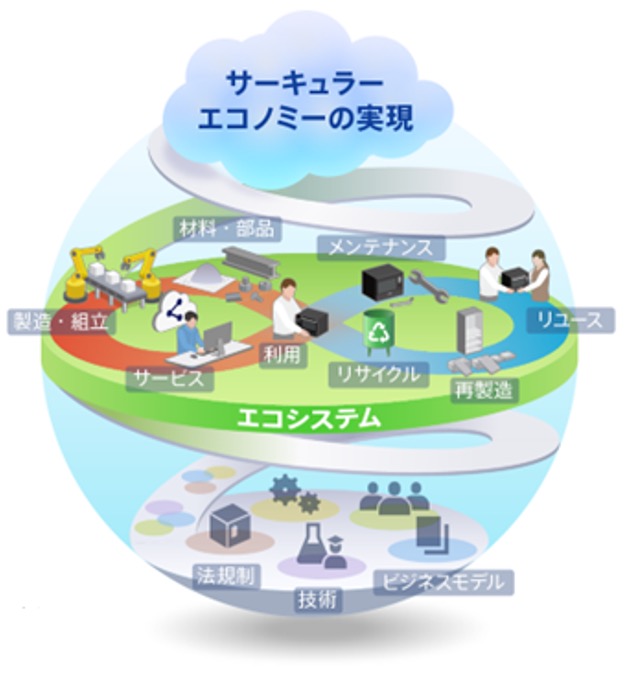
Social Cooperation Program, Mitsubishi Electric Corporation
Design for Sustainable Circular Economy Based Future Society
Co-Investigator, 2023-2026
To realize a circular economy, it is crucial to not only reduce environmental burden but also establish economic rationality among the ecosystem's stakeholders. In this course, we will focus on modeling the entire ecosystem and use simulations to analyze stakeholder relationships. We will identify factors that hinder economic rationality and conduct research to address these challenges.

Collaborative research, Lively
Research on the development of methodologies for the application of Life Cycle Assessment (LCA) within corporate management
Principal Investigator, 2023
The objective is to clarify the role and significance of Life Cycle Assessment (LCA) in corporate management and to develop a methodology for its strategic utilization. This involves collecting examples of LCA application within corporate settings and creating methods to enhance its effectiveness in strategic management decisions.
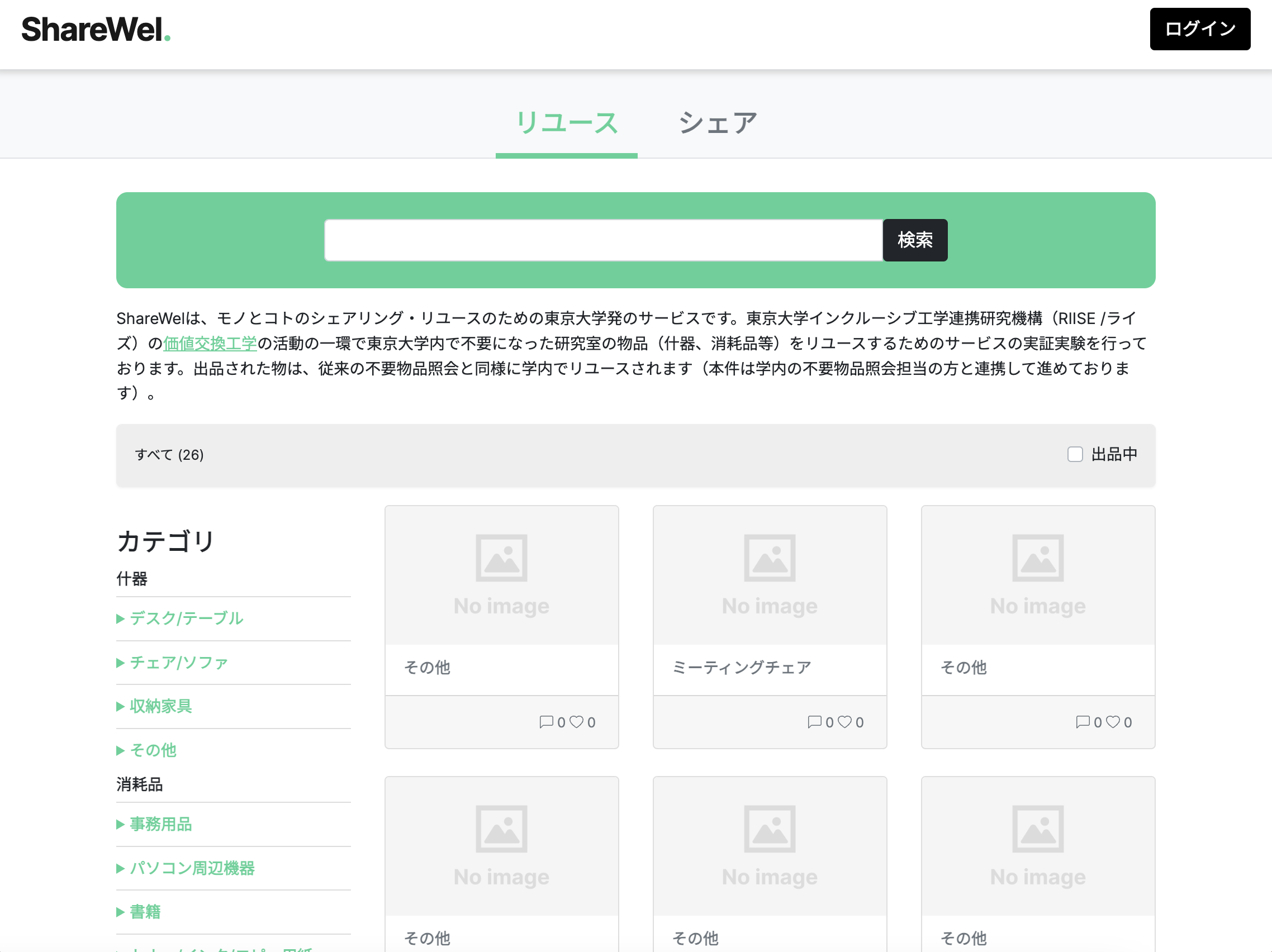
Value Exchange Engineering research program at the Research Institute for Inclusive Society through Engineering (RIISE), mercari R4D
Sharing and reuse platform for well-being (ShareWel)
Research collaborator, 2022-2024
ShareWel is a service that promotes the sharing and reuse of goods and services. It is part of the Value Exchange Engineering research program at the Research Institute for Inclusive Society through Engineering (RIISE). We are currently conducting a pilot study for a service that facilitates the reuse of surplus laboratory items, such as furniture and consumables, within the university.

Grant-in-Aid for Scientific Research (C)
Development of simulation for environmental and economic evaluation of digital technology in Product-Service Systems
Principal Investigator, 2023-2026
In recent years, 'Product-Service Systems (PSS),' where manufacturers offer product functionalities as services, have gained traction as a strategy to concurrently mitigate environmental impacts and boost economic growth. Leveraging digital technologies, such as the Internet of Things (IoT), is critical to maximizing the environmental and economic advantages of PSS. In this study, we develop a simulation that assesses the environmental and economic impacts of integrating digital technology during the PSS design phase.

Grant-in-Aid for Scientific Research (B)
Construction and Utilization of Field Experiment Platform for Mechanism Design Practice
Co-Investigator, 2022-2025
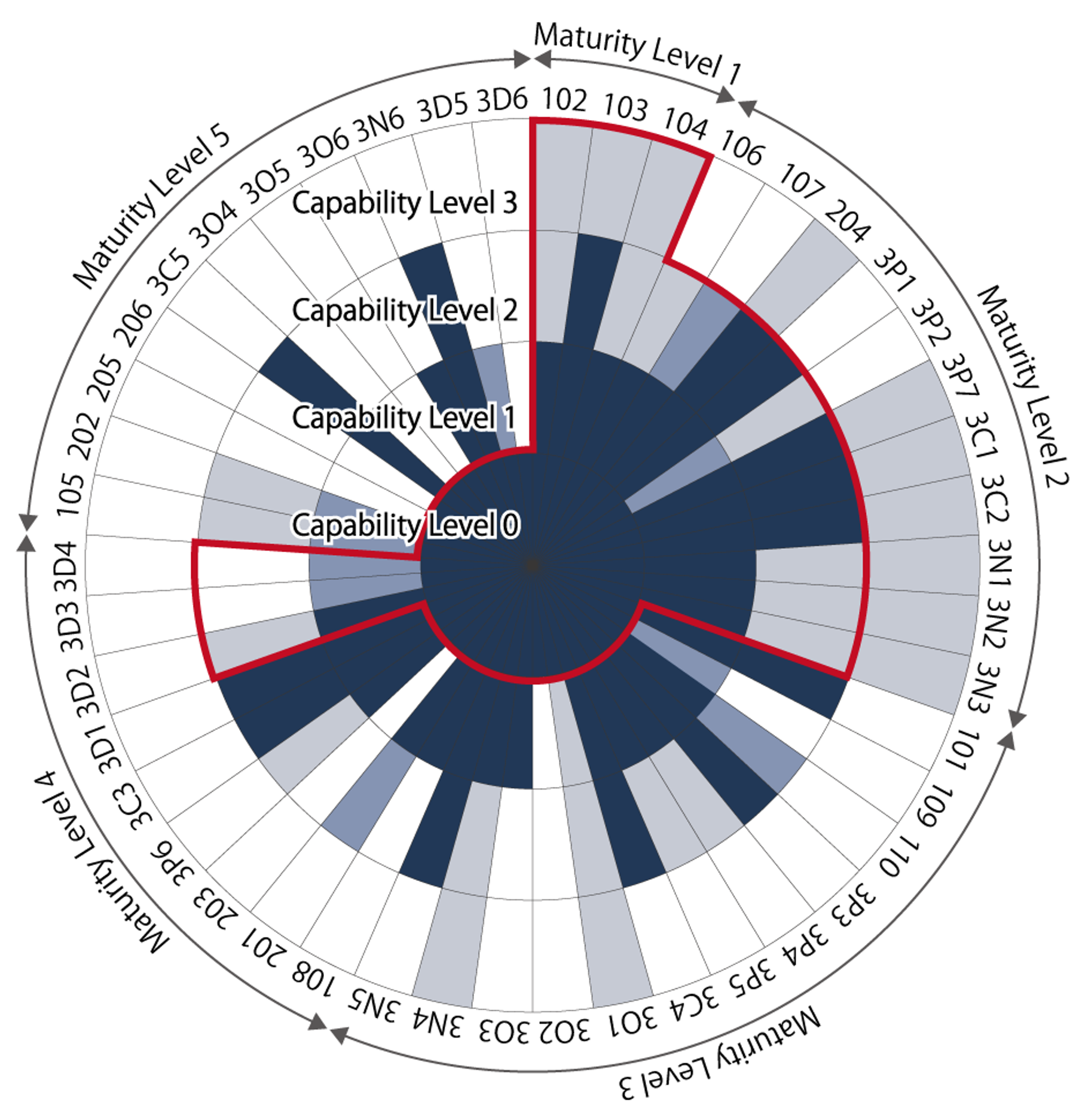
Grant-in-Aid for Scientific Research (B)
Development of Practical Methods to Elucidate and Enhance the Capabilities for the Servitization of Manufacturing
Principal Investigator, 2020-2023
To enhance the environmental and economic benefits of servitization in manufacturing, organizational capabilities distinct from traditional product manufacturing and sales are required. This study aims to systematize the necessary capabilities for improving the benefits of servitization and to develop practical methods that support the enhancement of these capabilities.
Grant-in-Aid for Scientific Research (C)
Developing a tool to support context sharing processes for value cocreation with learners
Principal Investigator, 2017–2019
Grant-in-Aid for Scientific Research (C)
Development of a Model for Kansei Value Recognition and Mapping of Biological Information by a Knowledge Engineering Approach
Co-Investigator, 2016–2019
Grant-in-Aid for Young Scientists (B)
A Qualitative Simulation Method for Evaluating Service Quality in the Early Design Stage
Principal Investigator, 2015–2016
Grant-in-Aid for Scientific Research (B)
A Study on Service Design Support Environment Considering Variable Service Quality Factors
Co-Investigator, 2014–2016
Doctoral Course (DC) Research Fellowships
The development of a service PDCA cycle support tool to achieve continuous quality improvement
Principal Investigator, 2010–2012
Project Proposal System by University Researchers
Social Implementation of an Urban Circular Economy Model through a Soft System Centered on Businesses and Tokyo Residents
Co-Investigator, 2025-2027
Leveraging Tokyo's dense economic environment, this project aims to promote the distribution of ethical products and services that are environmentally friendly, economically viable, and socially responsible. To support sustainable choices by citizens and businesses, it will develop and test objective and fair evaluation indicators for circular economy (CE) initiatives. These indicators will be integrated with concrete business models and used to create a framework that also contributes to enhancing corporate value.
Environment Research and Technology Development Fund
Study on the Design of Transition Scenarios for the Realization of Circular Economy Business Models
Co-Investigator, 2025-2028
This study aims to develop scenario design methods for circular economy (CE) businesses, focusing on home appliances, to shift away from mass production and consumption. Beyond technological development, it emphasizes the importance of institutional design and business models that meet consumer values. By integrating simulation models and consumer behavior experiments, the study evaluates and compares the environmental and economic impacts of CE scenarios, establishing a framework for effective environmental policymaking.
SciREX Coevolution Implementation Program (Phase III)
Development of a Design Method for Mission-Oriented STI Policies and R&D Strategies
Co-Investigator, 2023-2026
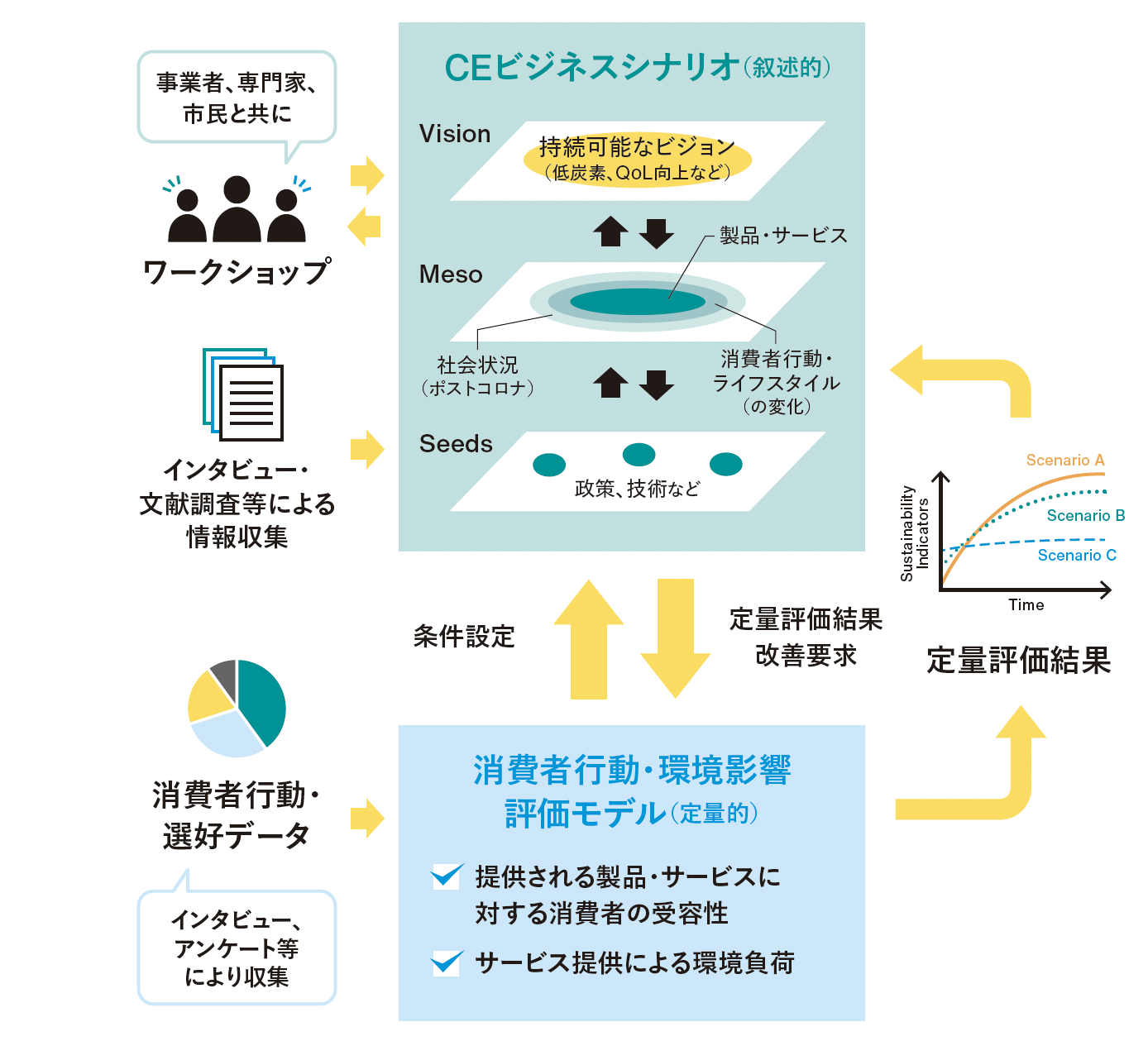
Environment Research and Technology Development Fund
Research on Assessing Environmental Impact Reduction Potential for Service-oriented Circular Economy Businesses
Co-Investigator, 2022-2025
This study aims to propose a method for evaluating the environmental potential of service-oriented circular economy (CE) businesses, which deliver product functions as services rather than through traditional product sales. We will create various service-oriented CE business scenarios and evaluate consumer acceptance and the potential for reduced environmental impact. This will be achieved by developing models to assess consumer behavior and environmental impact.
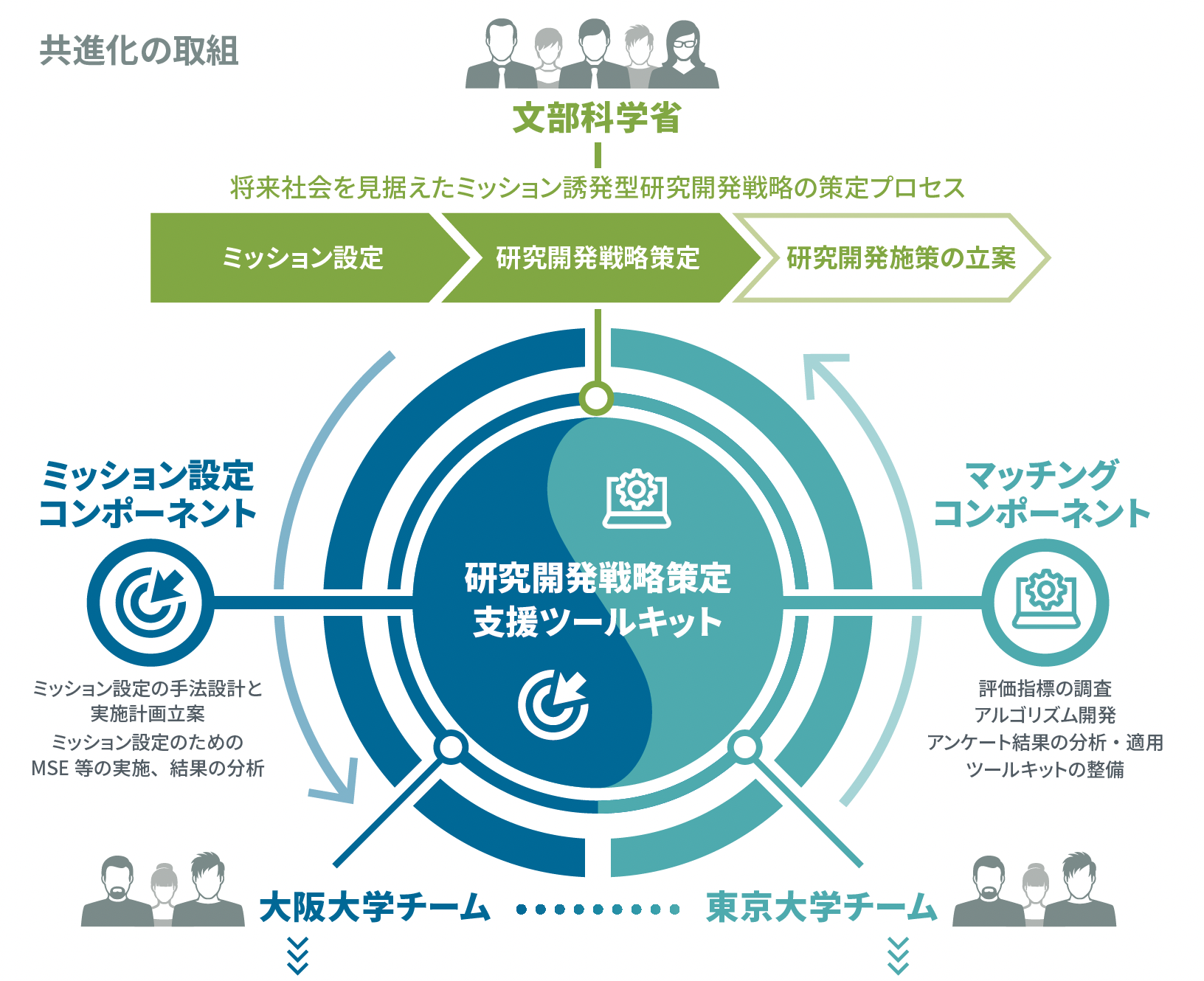
SciREX Coevolution Implementation Program (Phase II)
Government-academia co-formulation of R&D strategies for the future society
Co-Investigator, 2021−2023
Service Science, Solutions and Foundation Integrated Research Program, Feasibility Study, RISTEX
Survey on barriers in the servitization of Japanese manufacturing and research issues for their resolution
Co-Investigator, 2016
Service Science, Solutions and Foundation Integrated Research Program, RISTEX
A method for the transition to value co-creative service by enhancing provider's competency and receiver's literacy
Co-Investigator, 2013-2016